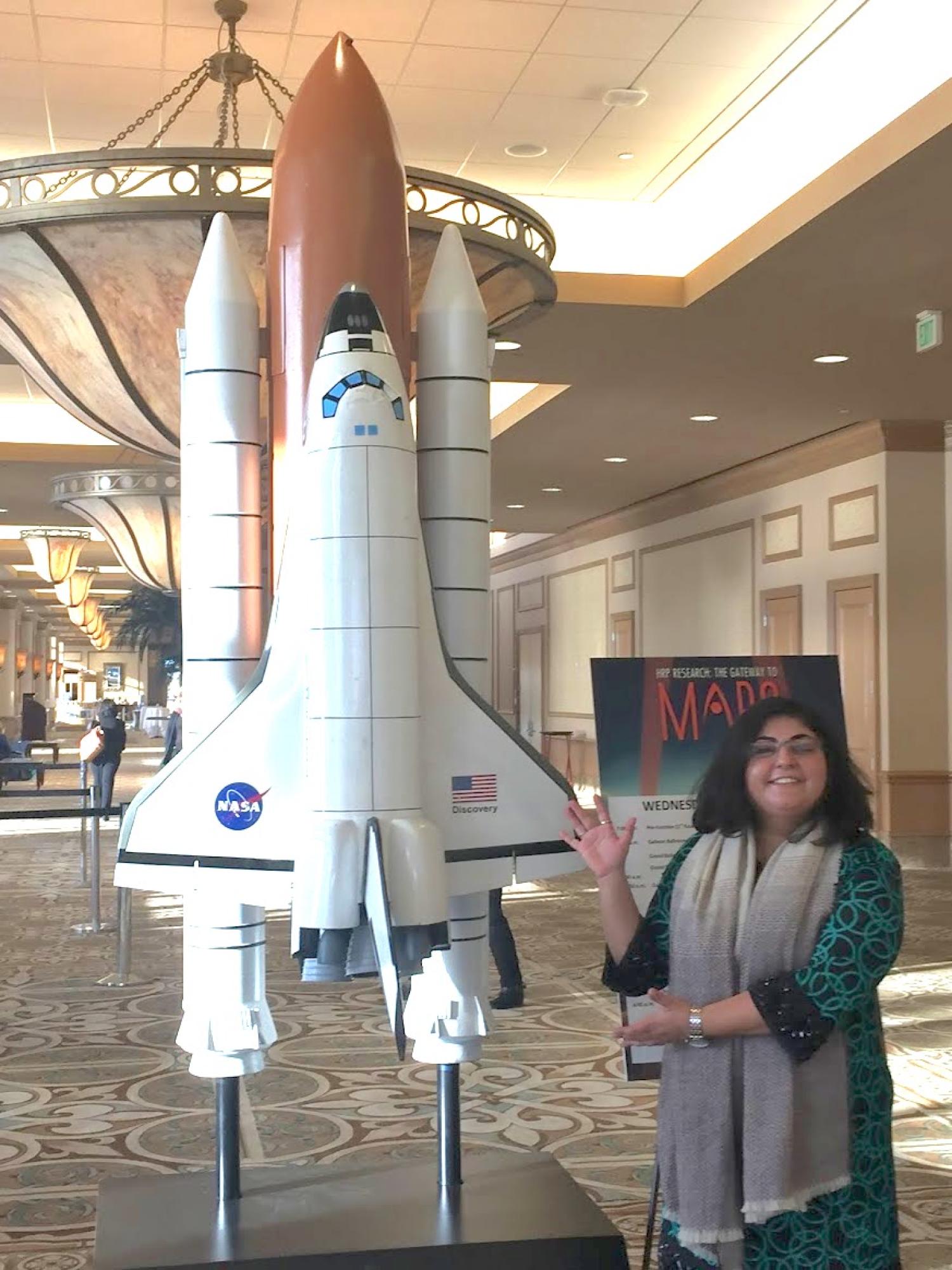"This is my chance to connect the dots and do what I was born to do." - Kimia Seyedmadani

Name: Kimia Seyedmadani
Hometown: Tehran, Iran
Major: Aerospace PhD Student
Laboratory: Bioastronautics/Space Research Company
I was born in Tehran, Iran. I always excelled in math, competing in competitive math as an olympiad student in high school.
I came to the United States to go to Arizona State University and received by bachelor’s in bioengineering, and later my master’s in biomedical engineering. My undergraduate research focused on biomechanics and rehabilitation, which led to a prototype low-cost, off-the-shelf prosthetic.
After my MS, I worked in bioengineering product design and later served as a consultant at Boston Scientific on the development of revolutionary treatments for pancreatic cancer.
Meanwhile, my interests in health and exploration led me to become an affiliate of the Man-Vehicle Laboratory at Massachusetts Institute of Technology where I conducted research on the effects of hyper gravity on human physiology.
After this whirlwind I left the biomedical industry and decided to return to graduate school. Studying aerospace engineering will allow me to impact the future of human life.
Although I have designed more than 50+ medical devices for improving human life on earth, I believe knowledge of space can take me to the next step, and I couldn’t do that with a master’s in biomedical engineering. So, I decided to go for an aerospace PhD, and CU Boulder is one of the few places in United States that have the expertise and knowledge in bioastronautics I need to further my career.
I knew it wouldn’t be easy an easy journey, but when I stood on the field next to the engineering building and I saw the great flatiron mountains standing tall in front of me, I knew that this was my chance to connect the dots and do what I was born to do.
I came to CU to understand how we can not only study but support life in space. Currently my research interest is in understanding human physiology adaption in space and possibly using biomedical countermeasures to enhance human performance.
I enjoy the strength and the support of students more than anything at CU. From day one, I had group of people who wanted to succeed together.
This study is looking at crew interactions via a framework designed by the Dr. Christine Fanchiang group in The Space Research Group. I really like it here at CU, for so many reasons big and small.
Small things: it’s funny to say but I love the school mascot Chip the Buffalo, he is kind-looking but strong, has no fears and it seems to take the field with passion. Graduate school is busy, so I enjoy the work-life balance of having some spare time to get involved in outreach and mentorship activities, such as being a technical advisor for Edge of Space. I also enjoy traveling, fencing, learning new sports and hiking in the mountains.
Big things: I enjoy the strength and the support of students more than anything at CU. From day one, I had group of people who wanted to succeed together. They understood that the world we live in is a multiverse and we need all hands on if we want to do great things.
Last semester I was involved with a student organization that was trying to expand diversity and cultural understanding, and we organized an event attended by over 1,000 participants. It was eye opening how many of our students, staff and faculty were interested and committed to assist us with this event. It shows the welcoming community in engineering, that no matter who we are or where we’re from, we are all pulling together.

